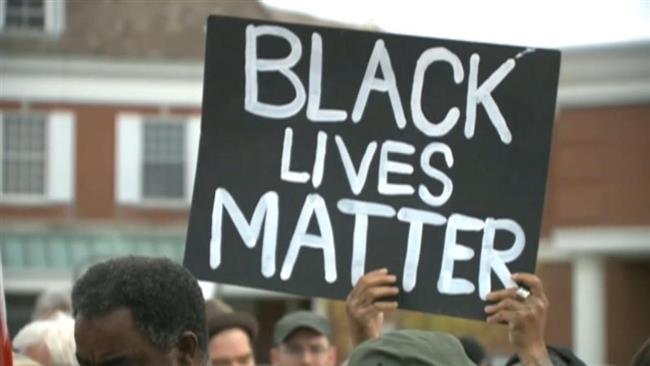
RNA - The 12-page report released in August states that "black identity extremists" are increasingly targeting law enforcement after persistent police killings of African American men, especially since the shooting of Michael Brown stirred unrest in Ferguson, Missouri, in 2014, AP reported Saturday.
It further points to cases, in which "extremists" had "acted in retaliation for perceived past police brutality incidents," warning that such violence was likely to continue.
African American leaders and activists expressed outrage over the report after its was revealed by the US-based Foreign Policy journal last month.
African American voters throughout the US have overwhelmingly opposed US President Donald Trump over his policies against American minorities.
For instance, Trump was slow to condemn white nationalist protesters following a deadly rally in Charlottesville, Virginia.
In a letter to Trump-appointed FBI Director Christopher Wray, the Congressional Black Caucus complained that the report "conflates black political activists with dangerous domestic terrorist organizations" and would further erode the frayed relationship between police and minority communities.
"I have never met a black extremist. I don't know what the FBI is talking about," said Ferguson-based filmmaker, Chris Phillips.
Phillips, who is set to release a film about the shooting of Brown and its aftermath, said if the FBI is really worried about unrest, it should turn its focus to the concerns of the people "who are protesting in the streets" instead of targeting people who face discrimination daily.
According to the AP report, some veterans of the black and Hispanic civil rights movement have also stated that the FBI assessment reminds them of the bureau's now-defunct COINTELPRO, a covert and often illegal operation under its infamous Director J. Edgar Hoover in the 1950s and 1960s.
At the time, FBI agents were assigned to "expose, disrupt, misdirect, or otherwise neutralize the activities of black nationalists," Hoover said in a once-classified memo to field agents.
The report further cites David Correia, an American Studies professor at the University of New Mexico, as insisting that the latest FBI memo carries a similar message, saying, "It's part of their playbook."
"They try to characterize legitimate concerns about something like police violence as somehow a danger so they can disrupt protests," Correia added.
The FBI used a similar tactic to try to cause confusion among New Mexico Hispanic land grant activists in the 1960s, he underlined.
The cases listed in the new bulletin include that of a sniper who said he was upset about police treatment of minorities before killing five officers during a protest in Dallas, and a man who wrote of the need to inflict violence on "bad cops" before killing three in Baton Rouge, Louisiana.
In each of the cases, the suspects were claimed connected to radical ideologies linked to black nationalism, without elaborating.
"Our focus is not on membership in particular groups but on individuals who commit violence and other criminal acts," the FBI said. "Furthermore, the FBI does not and will not police ideology. When an individual takes violent action based on belief or ideology and breaks the law, the FBI will enforce the rule of law."
847/940